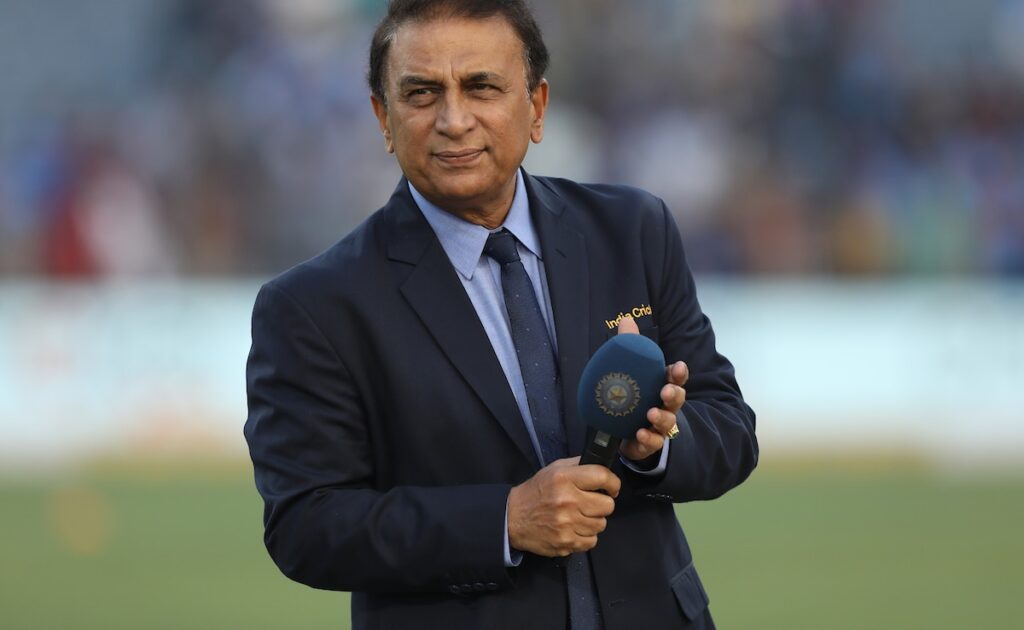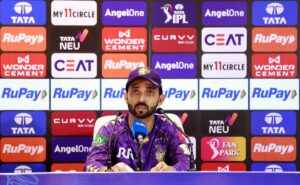
"For The Next 78,000 Years...": Sunil Gavaskar To Terrorists Behind Pahalgam Attack, That Claimed 26 Lives
Sunil Gavaskar Pahalgam Attack Response: “For The Next 78,000 Years Nothing Will Change” – Cricket Legend Urges Peace
Table of Contents
- Sunil Gavaskar’s Emotional Response to Pahalgam Attack
- Pahalgam Attack: Details of the Terrorist Strike
- The Human Cost: 26 Lives Lost in Baisaran
- Indian Government’s Swift Response Measures
- Prime Minister Modi’s Strong Message to Terrorists
- Cricket Community Stands United Against Terrorism
- National Sentiment and Unity After the Attack
Cricket legend Sunil Gavaskar’s Pahalgam attack response has resonated across India, as the former captain delivered a poignant message questioning the purpose of continued conflict. Speaking ahead of an IPL match in Bengaluru, Gavaskar addressed the perpetrators of Tuesday’s deadly terrorist attack that claimed 26 lives in the picturesque Baisaran meadows of Pahalgam, Kashmir. His emotional appeal for peace comes as the nation grieves and the government implements strong countermeasures against terrorism.
Sunil Gavaskar’s Emotional Response to Pahalgam Attack
The Sunil Gavaskar Pahalgam attack response came during his commentary stint for the IPL 2025 match between Royal Challengers Bengaluru and Rajasthan Royals. Visibly moved by the tragedy, the cricket icon began by expressing condolences to the families affected by the devastating attack. “I send my condolences to all the families who have lost their loved and dear ones. It has affected all of us Indians,” Gavaskar stated on Star Sports, capturing the collective grief felt across the nation.
Going beyond mere condolences, the Sunil Gavaskar Pahalgam attack message directly addressed the perpetrators with a profound question that cuts to the heart of the ongoing conflict: “What has all this fighting achieved? For the last 78 years, not one millimetre of land has exchanged hands, is it? So for the next 78,000 years, nothing is going to change.” This powerful statement from the cricket legend highlights the futility of violence and terrorism as means to achieve political objectives.
Gavaskar’s Appeal for Peace
The most striking aspect of Sunil Gavaskar’s Pahalgam attack response was his direct appeal for peace: “So why don’t we live in peace instead, and make our country strong? So that is my appeal.” This statement reflects the sentiments of millions of Indians who desire peaceful relations and sustainable development rather than continued conflict and bloodshed. Coming from a respected sports personality with no political affiliations, this message carries significant moral weight across societal divides.
Pahalgam Attack: Details of the Terrorist Strike
The Sunil Gavaskar Pahalgam attack comments refer to the horrific terrorist strike that unfolded on Tuesday afternoon when terrorists associated with a Lashkar-e-Taiba offshoot unleashed violence on tourists visiting the scenic Baisaran meadows. Known for its breathtaking natural beauty and popularity among domestic and international tourists, Pahalgam transformed into a scene of horror as armed terrorists attacked unsuspecting visitors exploring the area.
Security agencies have identified the attack as a coordinated operation targeting civilians, specifically aimed at disrupting tourism in Kashmir and creating fear. The timing of the attack during peak tourist season suggests a deliberate attempt to damage Kashmir’s economy and peaceful image that had been gradually improving in recent years. The Sunil Gavaskar Pahalgam attack statement underscores the senselessness of such violence that only results in human suffering without achieving any territorial or political objectives.
The Human Cost: 26 Lives Lost in Baisaran
The devastating human toll that prompted the Sunil Gavaskar Pahalgam attack response included 26 fatalities—25 Indian tourists from 14 different states across the country and one Nepali national. This diversity of victims highlights how the attack struck at India’s pluralistic fabric, targeting people from various regions, backgrounds, and communities who had gathered to experience Kashmir’s natural beauty.
The widespread geographic origin of the victims has transformed what might have been seen as a regional incident into a national tragedy, touching families across India. This national dimension of grief is reflected in the Sunil Gavaskar Pahalgam attack statement when he noted that the attack “has affected all of us Indians,” emphasizing the collective trauma experienced by the nation regardless of state or regional identities.
Unity in Tragedy
The diverse backgrounds of the victims in the Pahalgam attack have inadvertently highlighted India’s unity in diversity. With casualties from 14 different states, the tragedy has brought together Indians from across the country in shared grief and solidarity, transcending regional, linguistic, and cultural differences. The Sunil Gavaskar Pahalgam attack message resonates with this sentiment of national unity in the face of terrorism.
Indian Government’s Swift Response Measures
Following the attack that prompted the Sunil Gavaskar Pahalgam attack comments, the Indian government has implemented several significant countermeasures. These include the indefinite suspension of the Indus Water Treaty, closure of the Attari border crossing with Pakistan, and revocation of visas for all Pakistani nationals currently in India. These non-military actions represent immediate diplomatic and economic responses while more comprehensive security measures are being developed.
The government’s multi-pronged approach indicates a strategy that combines diplomatic isolation, economic pressure, and enhanced security operations. While Gavaskar’s response to the Pahalgam attack focuses on the philosophical futility of conflict, these governmental actions address the immediate security needs and signal India’s resolve to respond firmly to terrorist provocations, demonstrating that such attacks will not go unanswered.
Prime Minister Modi’s Strong Message to Terrorists
While the Sunil Gavaskar Pahalgam attack statement offered a reflective, philosophical perspective on the conflict, Prime Minister Narendra Modi’s response two days after the tragedy delivered a more forceful message. Addressing the nation, Modi characterized the attack not just as an assault on innocent tourists but as an attempt to attack “India’s soul,” elevating the significance of the incident to a fundamental challenge to national identity.
The Prime Minister’s declaration that “The time has come to raze whatever is left of the terror haven” and that India will “identify, track and punish every terrorist and their backers” established a stark contrast to Gavaskar’s peace-oriented message. Modi’s promise to “pursue them to the ends of the earth” conveys the government’s determination to take decisive action, while his assertion that “terrorism will not go unpunished” reassures citizens that the state will respond to protect its people.
Cricket Community Stands United Against Terrorism
The Sunil Gavaskar Pahalgam attack response represents the cricket community’s solidarity with the nation during this difficult time. As one of India’s most respected sports personalities, Gavaskar’s comments carry significant weight and reflect how sporting figures can transcend their athletic roles to address critical national issues. His statement before an IPL match demonstrates how even in the midst of a popular sporting tournament, matters of national security and human tragedy take precedence.
Other cricket figures have similarly expressed condemnation of the attack and support for the victims, showing how the sport that unites millions of Indians can also serve as a platform for expressing national solidarity during crises. The IPL match between Royal Challengers Bengaluru and Rajasthan Royals proceeded with a moment of silence and black armbands, balancing the continuation of the tournament with appropriate recognition of the national tragedy.
Sports as a Unifying Force
Cricket’s status as India’s most popular sport gives its prominent figures like Gavaskar a unique platform to address national issues. The Sunil Gavaskar Pahalgam attack statement exemplifies how sports personalities can use their influence constructively during national crises, promoting unity and thoughtful reflection rather than division or hatred. This demonstrates the potential of sports to serve as a unifying force during challenging times.
National Sentiment and Unity After the Attack
The national response to the tragedy that prompted Sunil Gavaskar’s Pahalgam attack comments has been one of unified grief and resolve. Prime Minister Modi captured this sentiment when he stated, “From Kargil to Kanyakumari, there is grief and rage,” highlighting how the attack has affected Indians across the country’s vast geography. This national unity in response to terrorism reflects the country’s resilience in the face of attempts to create division and fear.
Modi’s assertion that “The will of 140 crores will break the back of the masters of terror” emphasizes the power of national unity against terrorism. The Prime Minister’s statement that “India’s spirit will never be broken by terrorism” complements Gavaskar’s thoughtful questioning of the purpose of continued conflict, both expressing in different ways the nation’s determination to overcome challenges through strength and, ultimately, the pursuit of peace and development.
Conclusion
The Sunil Gavaskar Pahalgam attack response offers a reflective counterpoint to the immediate governmental actions and the Prime Minister’s forceful declarations. His question—”What has all this fighting achieved?”—invites deeper consideration of the long-term futility of violence while acknowledging the immediate grief and outrage felt across the nation. By extending his perspective to “the next 78,000 years,” Gavaskar places the current tragedy in a historical continuum that emphasizes the ultimate necessity of peace for progress.
As India mourns the 26 lives lost in this senseless attack and implements measures to prevent future tragedies, the cricket legend’s message serves as a reminder that beyond the necessary security responses lies the broader aspiration for a future where such violence becomes unthinkable. His simple yet profound appeal—”Why don’t we live in peace instead, and make our country strong?”—captures the essence of a nation’s desire to channel its energies toward development rather than conflict, even as it stands firm against terrorism.






